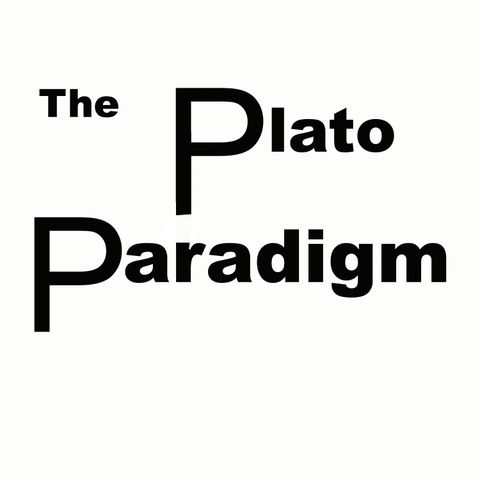0109 Meno 84a
1 set 2023 ·
14 min.

Scarica e ascolta ovunque
Scarica i tuoi episodi preferiti e goditi l'ascolto, ovunque tu sia! Iscriviti o accedi ora per ascoltare offline.
Descrizione
The Theory of Recollection - part 9: The demonstration - part 5: Socrates discusses with Meno the exercise so far, stressing how being numbed by the torpedo fish (using Meno's...
mostra di più
The Theory of Recollection - part 9:
The demonstration - part 5:
Socrates discusses with Meno the exercise so far, stressing how being numbed by the torpedo fish (using Meno's analogy) is no bad thing, but a necessary step towards searching for the truth. Vlastos' "Socratic Method" accepts that Socrates does indeed lead his interlocutors to the realization that they do not know what they thought that they did know, resulting in aporia, a necessary condition before the search for the truth may begin. This description, however, is tailored to Meno's way of thinking, and does not conform with essentially the Socratic examination of hypotheses, no matter whether the interlocutor treats them as knowledge or mere opinion. The slave had been manipulated into giving particular answers, effectively hypotheses, and they were not opinions the slave had held previously at all, let alone as opinions which he had treated as knowledge. The slave's aporia stems not from his awareness of ignorance but from his inability to find another baseline (it hasn't yet been drawn). Socrates is using the present exercise to neutralize Meno's objection to continuing beyond his own pseudo-aporia, and if the slave does eventually find the correct answer, Meno will surely be convinced that it is worth continuing to look for an answer regarding virtue.
mostra meno
The demonstration - part 5:
Socrates discusses with Meno the exercise so far, stressing how being numbed by the torpedo fish (using Meno's analogy) is no bad thing, but a necessary step towards searching for the truth. Vlastos' "Socratic Method" accepts that Socrates does indeed lead his interlocutors to the realization that they do not know what they thought that they did know, resulting in aporia, a necessary condition before the search for the truth may begin. This description, however, is tailored to Meno's way of thinking, and does not conform with essentially the Socratic examination of hypotheses, no matter whether the interlocutor treats them as knowledge or mere opinion. The slave had been manipulated into giving particular answers, effectively hypotheses, and they were not opinions the slave had held previously at all, let alone as opinions which he had treated as knowledge. The slave's aporia stems not from his awareness of ignorance but from his inability to find another baseline (it hasn't yet been drawn). Socrates is using the present exercise to neutralize Meno's objection to continuing beyond his own pseudo-aporia, and if the slave does eventually find the correct answer, Meno will surely be convinced that it is worth continuing to look for an answer regarding virtue.
Informazioni
| Autore | Ivor Ludlam |
| Sito | - |
| Tag |
Copyright 2024 - Spreaker Inc. an iHeartMedia Company
